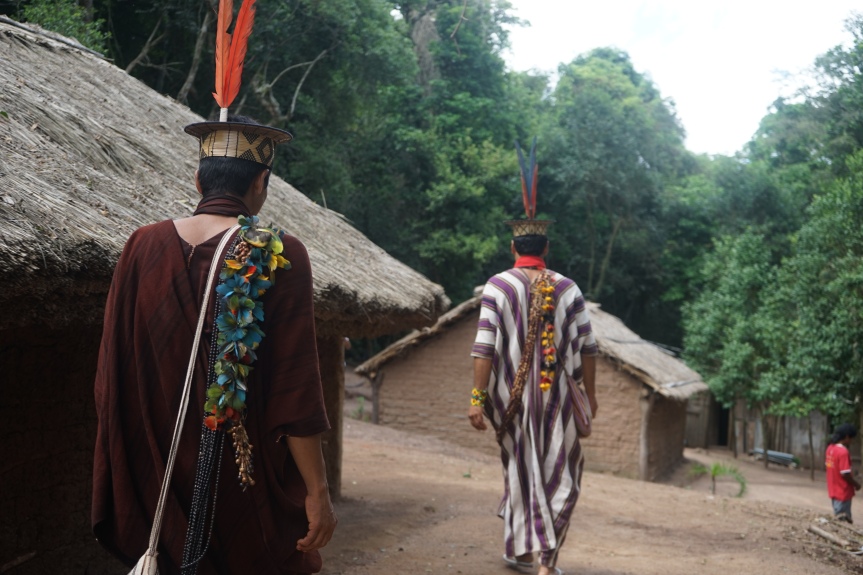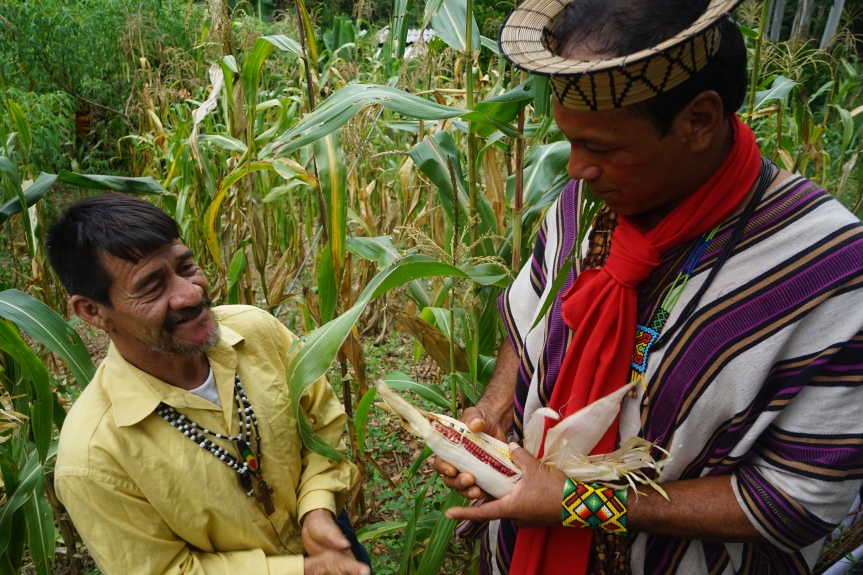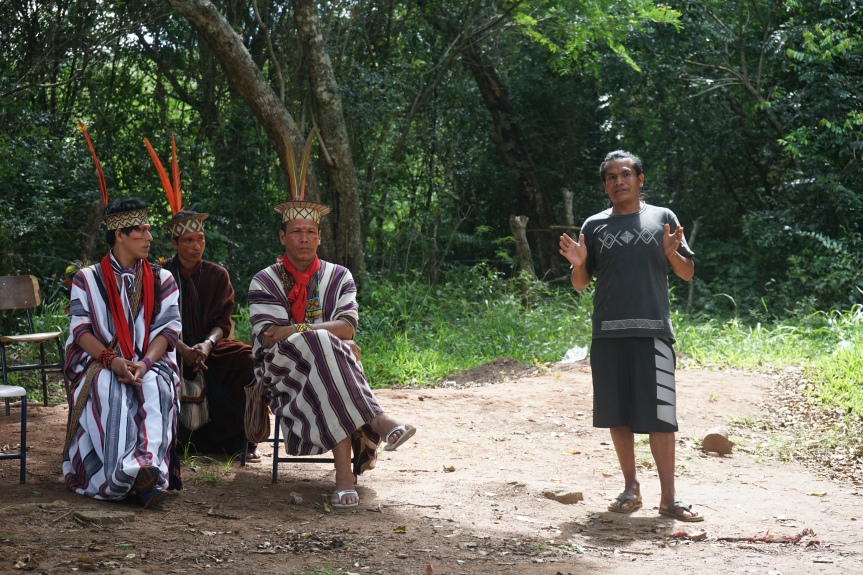 Carolina Schneider Comandulli
Carolina Schneider Comandulli
Extreme Citizen Science Research Group
University College London
The Centre for the Anthropology of Sustainability has been supporting the project “Environmental and Territorial Management in Indigenous Lands of the Guarani People in South and Southeast Brazil”, since the beginning of 2016. Financed by the Newton Fund – British Council, the project has as main objective to carry out activities focused on the relationship between territorial occupation and preservation, ensuring environmental management in Guarani lands. Through three main fronts of action, the NGO Indigenous Labor Center (CTI) is carrying out activities that are working with this theme in joint execution with Guarani communities, according to their demands and interests.
Among the project activities, there was the construction of territorial and environmental management plans (PGTAs) for five Guarani lands, which are instruments of intercultural planning on the use of the territory which reflect the aspirations and perspectives of the indigenous communities regarding their future. PGTAs are a tool for promoting internal and external agreements on the protection of their territories, and an asset to promote their autonomy and self-determination. Last but not least, they are a resource for accessing and demanding the implementation of public policies and a way of building partnerships to achieve their aims. Other project activities included workshops on agriculture, joint communal planting activities, seed exchanges and the construction of traditional ceremonial houses in various indigenous lands.

A very important event promoted by the partnership occurred between January 28th and February 2nd, consisting of the second phase of exchange between Guarani from Southern Brazil and the Ashaninka people from Acre. These two major indigenous groups met for the first time in October 2016, when the Guarani went to Acre to visit the Ashaninka village of Apiwtxa. The exchange was made possible with the support of CAOS researcher Carolina Comandulli, who carried out her MSc at UCL with the Guarani people and is currently doing her PhD with the Ashaninka people. The Ashaninka from Apiwtxa live in the Brazilian Amazon and have a remarkable story since the recognition and official demarcation of their land. They are currently a national and international example in territorial management and community organisation. The Guarani people, from the Atlantic rainforest, are still struggling for many of their lands, and suffering from the ecological degradation of their titled territories. Both the Guarani and the Ashaninka hoped the exchange would help inspire and strengthen the Guarani’s efforts to protect and restore their lands, as well as provide an opportunity to share their strategies of community organisation.
In this second gathering, the Ashaninka from Acre came to see the reality of Guarani lands in Rio Grande do Sul state. They visited two titled Guarani lands, as well as one land currently in the demarcation process, and an unrecognised settlement by the roadway which has been there for the last 30 years. During the five days of exchange, the Ashaninka listened to the difficulties faced by their fellow Guarani, and also shared with each community how they have responded to similar challenges to safeguard and look after their land in Apiwtxa.
Moisés Piyãko, an Ashaninka leader, explained:
“Today, no-one can guarantee he/she will survive, not even a millionaire. If we face an energy crisis, everything may collapse. And then even millionaires – who have massacred us, indigenous peoples – may come to us to ask for food. Up until today, we still do not know who is weaker or stronger. The battle is ongoing. Each indigenous people is different, but we have something in common that we know is important to us all, which is nature. Our mobility has led many people say that we were not able to look after the earth, but maybe now people began to understand that if we stay always in the same place we will exhaust the earth. White people looked at us as a hindrance to economic development, but we know we are not backwards. We are looking after life on the Planet, and by doing this we are benefiting even the ones who are trying to cause us harm. To me it is very important to be here and to get to know how you are living, struggling to survive. You are here with your spirit, and nothing else. White people are still killing us as they did in the past, but in a different way.”

A Guarani chief replied to the Ashaninka:
“Thank you for coming here. Your visit brings us strength. Up to these days white people tell us we do not know how to plant and to look after the earth. Even though they always bring seeds from the outside for us to plant, we prefer to keep on planting our native seeds, because our food is sacred.”
The reflections from these Brazilian indigenous leaders offer insights to the works of the Centre for the Anthropology of Sustainability, which is concerned in supporting a flourishing diversity of lifestyles, of plants and animals, and of human relations with nature as the only sure way of addressing current global environmental degradation, rising social inequalities and dispossession.

